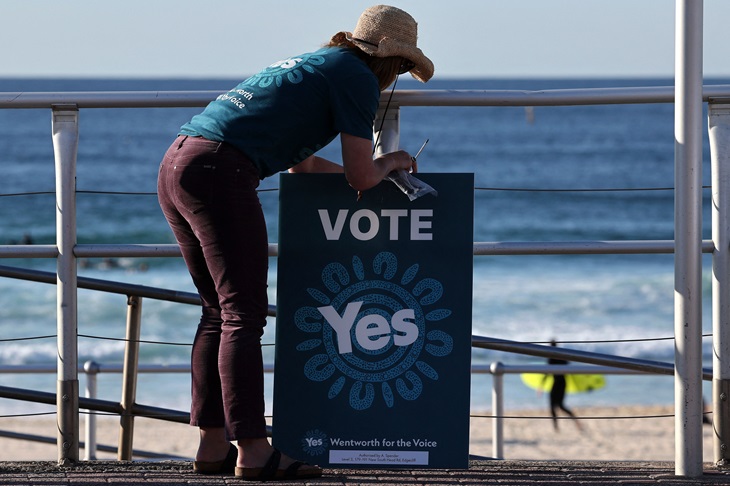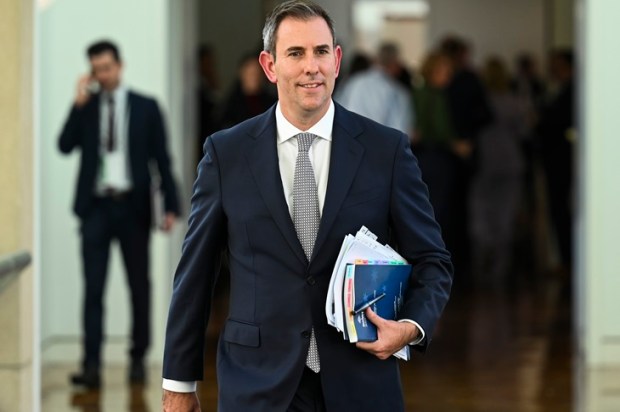The defeat of the Voice Referendum is no reason to rejoice, but rather a time for reflection. Indigenous communities need the government to focus on providing support that suits their circumstances, rather than a Canberra-based bureaucracy that makes representations on behalf of people who already have representatives. This view was supported by a majority of Australians at the referendum. Regrettably, however, many supporters of the ‘Yes’ campaign have since decided to double down on their failed policy stance, suggesting that elite activists believe they know better than Australian voters.
CEOs have been reported as putting a defiantly ‘positive spin’ on the failure, as part of their requirement for a ‘social licence’ for their operations, particularly the big mining companies. A ‘social licence to operate’ is a term that refers to an informal agreement that a company has the community’s support to operate its business, such as a mine, in accordance with a general acceptance among stakeholders. This goes some way to explaining why the big mining companies supported the Voice.
Companies such as Qantas, however, had little to gain from supporting the Voice other than alleged political intervention to tip the balance of the market in favour of their company. When we returned from Melbourne the other day, Qantas remembered to welcome me to my own country but had forgotten to clean the trays for our entire row. Talk about priorities. Other publicly funded institutions have flirted with what can only be regarded as perceived conflicts of interest to support a government that might also bestow favours upon their sector. But that is the stuff of politics.
In the wake of the Voice’s defeat, one might have hoped that the insults would stop. But many inner-city and Canberra ‘Yes’ supporters continue to see themselves as the guardians of virtue when it comes to Indigenous policy. The failed referendum is a case of the government over-promising and under-delivering to Indigenous people, but somehow the majority of Australian voters are to blame. Those who refuse to accept the result of our democratic processes are quick to point out that the majority of Australian voters are ‘uneducated’ and ‘bogans’ who are inherently ‘racist’. To be sure, many people are saddened by this divisive process inflicted on all of us by the Prime Minister, but to keep banging on about an ‘advisory board’ that was ‘non-binding’ when none of these phrases appeared in the proposed amendments is irrelevant.
Aristotle argued that rhetoric, or the art of persuasion, is not about having knowledge or being an elite, but rather about having all that is required to persuade a public audience on any topic whatsoever. Rhetoric just happens to be one of the seven classical liberal arts (the others are grammar, logic, music, geometry, arithmetic, and astronomy). Elite activists have been trying to undo liberal education as part of the ‘decolonisation’ of our education system. Which brings me to my point.
If these self-professed elite activists are so highly educated, how did they fail so badly at persuading Australians to vote for their ill-conceived referendum question? And why do these same elite activists persist with the insults towards the majority of Australian voters who so decisively defeated the ill-advised Voice?
A smug superiority complex is at the heart of elite activism revealed in the post-Voice period. In what should have been a period of reflection, elite activists have continued to attack our democratic institutions. Imagine offering counselling to those who don’t get their own way – this smacks of entitlement. Worse, it does nothing to help those in remote communities who live in dire circumstances.
Virtue-signalling is within the purview of those elite activists who, put simply, think they are better than everyone else. Unfortunately for such activists, Australian voters aren’t mugs, and they can smell a self-professed ‘superior person’ at 40 paces. Yet at the same time, Australians tend to be conservative in their social behaviour, and as part of their easy-going nature, on the whole, they tend not to be in each other’s faces about politics. For example, even a conservative columnist sent ‘his love’ to some of my artist friends who were grieving the loss of the referendum.
But the good nature of Australian voters can be readily exploited by those ‘superior’ elites if the ‘silent’ majority does not stand up to virtue-signalling. This should not be done through trading insults or by ignoring the plight of Indigenous Australians who need support and need it now.
But the undoing of virtue-signalling requires rock-solid support for freedom of speech – for employees to be able to tell their bosses not to interfere in their political lives, for students and parents to tell educators that they do not have a monopoly on the truth, for taxpayers to demand that the ABC mend its ways or move to a subscription model, or to debate the elite activists who do not have all the answers. If the defeat of the referendum proves anything it is that the inner-city and Canberra activists are completely out of touch with those who provide the very prosperity that allows these activists to virtue-signal in the first place.
The argument that the ‘No’ campaign won by spreading ‘misinformation’ and ‘disinformation’ is so weak it makes no sense. The ‘Yes’ campaign had all the advantages but decided they knew better than everyone else. Australian voters aren’t mugs – it’s that simple. Whether the ‘superior’ elites will bother to reflect on their part in the failure of the Voice is a moot point. In the meantime, the government will push on with its disinformation and misinformation bill to ensure the majority of Australians don’t upset the elite activists. Activists will now be able to say, ‘Stop confusing me with your facts!’
What matters is that the silent majority of Australians who have politely turned the other cheek for too long must now stand up to virtue-signalling. We need real political action to fix our current social and economic problems, not performative and self-serving rituals that only suppress political debate. Jacinta Nampijinpa Price and Nyunggai Warren Mundine have shown us how effective such an approach can be.
The silent majority will do well to excise narcissism from public debate through the considered use of our peaceful and resilient democratic institutions, just like we did at the referendum. Elite activists are unlikely to listen, but their superiority complex must never again distract our governments from focusing on the things that really matter. The majority of Australians cannot afford it in more ways than one.
Got something to add? Join the discussion and comment below.
Get 10 issues for just $10
Subscribe to The Spectator Australia today for the next 10 magazine issues, plus full online access, for just $10.


























Comments
Don't miss out
Join the conversation with other Spectator Australia readers. Subscribe to leave a comment.
SUBSCRIBEAlready a subscriber? Log in